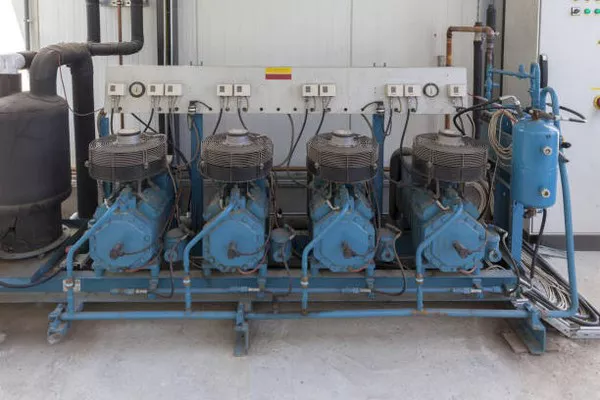In a world where power outages can disrupt daily life and essential services, having a generator can be a lifesaver. Whether you’re preparing for emergencies or seeking backup power for outdoor events, understanding what you need to run a generator efficiently is crucial. From fuel considerations to safety precautions, this guide explores the essential components and preparations required to ensure your generator operates smoothly when you need it most.
Fuel Supply: How Do You Ensure a Reliable Source?
One of the fundamental requirements for running a generator is a steady supply of fuel. Most generators operate on gasoline, diesel, propane, or natural gas. Gasoline is widely available and suitable for portable generators, but it has a limited shelf life and can degrade over time, making storage management essential. Diesel, on the other hand, is more stable and efficient for larger generators but requires proper ventilation due to its emissions. Propane offers clean-burning properties and extended shelf life, making it a popular choice for standby generators. Natural gas, supplied through pipelines, provides an uninterrupted fuel source but may not be accessible in all locations. Assessing your fuel options based on availability, storage capacity, and generator requirements is crucial for ensuring uninterrupted power supply during emergencies.
Generator Selection: What Factors Influence Your Choice?
Choosing the right generator involves evaluating various factors such as power output, portability, and fuel efficiency. Portable generators are suitable for temporary use and outdoor activities, offering flexibility in terms of placement and mobility. However, they may not provide sufficient power for whole-house backup during extended outages. Standby generators, permanently installed outside the home, are capable of powering entire households and automatically activate when utility power fails. Determining your power needs based on essential appliances and devices will help you select the appropriate generator size and type. Additionally, considering noise levels, maintenance requirements, and warranty coverage can aid in making an informed decision that aligns with your specific needs and budget constraints.
Installation and Safety: What Precautions Are Necessary?
Proper installation and adherence to safety protocols are critical for the reliable and safe operation of a generator. Standby generators require professional installation by certified technicians to ensure compliance with local building codes and electrical standards. Portable generators should be placed outdoors in well-ventilated areas to prevent carbon monoxide buildup and minimize the risk of fire hazards. Establishing a designated location away from doors, windows, and vents is essential to protect against exhaust fumes entering the living space. Moreover, employing transfer switches or interlock kits prevents backfeeding electricity into utility lines, safeguarding utility workers and preventing damage to appliances. Regular maintenance, including fuel stabilization, oil changes, and filter replacements, maintains optimal performance and prolongs the lifespan of the generator.
Power Management: How Do You Prioritize Loads?
During power outages, managing electricity usage becomes paramount to ensure essential devices receive power while preventing overload conditions. Prioritizing loads involves categorizing appliances into critical and non-critical categories based on their necessity for daily functioning. Critical loads such as refrigerators, medical equipment, and communication devices take precedence and should be connected to the generator through dedicated circuits or power strips. Non-critical loads like entertainment systems and lighting can be selectively powered off to conserve fuel and reduce the strain on the generator. Implementing load shedding techniques, either manually or through automated systems, optimizes energy distribution and prevents tripping of circuit breakers. Additionally, investing in energy-efficient appliances and LED lighting reduces overall power consumption, maximizing the available generator capacity.
Storage and Maintenance: How Do You Ensure Readiness?
Proper storage and regular maintenance are essential for ensuring the readiness and reliability of a generator during emergencies. Store fuel in approved containers in a cool, dry location away from direct sunlight and ignition sources to prevent degradation and contamination. Conduct routine inspections of the generator, including checking fuel levels, inspecting electrical connections, and testing the starting mechanism. Perform scheduled maintenance tasks as recommended by the manufacturer, such as changing oil and filters, inspecting spark plugs, and adjusting engine settings. Keep a detailed maintenance log to track servicing dates and performed tasks, facilitating troubleshooting and warranty claims. Additionally, conduct regular load tests to verify the generator’s capacity to handle anticipated loads and identify any potential issues before they escalate.
See Also How Much Propane To Run A Whole House Generator
Conclusion:
Running a generator effectively requires careful planning, preparation, and adherence to safety guidelines. By understanding your fuel options, selecting the right generator, ensuring proper installation, managing power loads, and maintaining equipment readiness, you can mitigate the impact of power outages and maintain essential services during emergencies. Incorporating these considerations into your emergency preparedness plan enhances your resilience and provides peace of mind knowing that reliable backup power is readily available when needed most. Remember, in times of crisis, proactive measures can make all the difference between inconvenience and safety.

